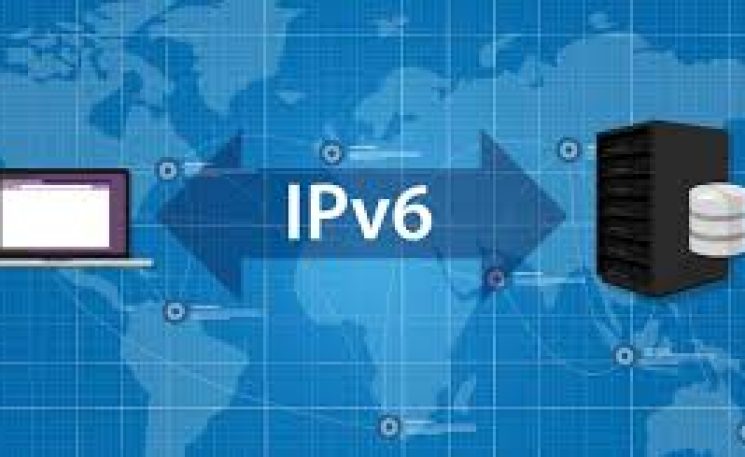Why Is Ipv6 IP Address Adoption Important In The Modern Internet?
The Internet has become an integral part of our daily lives, connecting billions of devices worldwide. With the continuous growth of the digital landscape and the advent of smart devices, the demand for unique IP addresses has surged exponentially. The Internet Protocol version 4 (IPv4) has been the backbone of the Internet since its inception, but with its limited address space, we are now facing an exhaustion crisis. To address this challenge, IPv6, the successor to IPv4, was introduced, offering a vast number of unique IP addresses. In this article, we will explore the significance of IPv6 IP address adoption in the modern internet, discussing its benefits, IPv6 link-local addressing, and its implications for the future.
The Exhaustion of IPv4 Addresses
IPv4, the fourth version of the Internet Protocol, uses 32-bit addresses, providing approximately 4.3 billion unique IP addresses. This might have seemed like an enormous number when the protocol was developed in the 1980s. However, with the rapid expansion of the internet and the proliferation of connected devices, the limited address space of IPv4 has become a major constraint. As a result, the Internet Assigned Numbers Authority (IANA) allocated the last blocks of IPv4 addresses to regional Internet registries, effectively depleting the global pool of available IPv4 addresses.
The Vast Address Space of IPv6
IPv6 is the sixth version of the Internet Protocol and uses 128-bit addresses, which translates to an astonishingly large address space of approximately 340 undecillion unique IP addresses. To put it in perspective, this is more than enough to assign an individual address to every grain of sand on Earth. This vast address space is a game-changer as it eliminates the need for network address translation (NAT), which was often used to extend the life of IPv4 addresses but came with its own limitations and complexities.
Scalability and Future-Proofing
One of the most significant advantages of IPv6 IP address adoption is its scalability. With such a vast pool of unique addresses, IPv6 can easily accommodate the growing number of devices and services that require internet connectivity. This scalability not only ensures that every device can have its own unique address but also eliminates the need for complex address management schemes.
Moreover, IPv6 adoption is crucial for future-proofing the internet. As the world embraces emerging technologies like the Internet of Things (IoT), smart cities, autonomous vehicles, and 5G networks, the demand for IP addresses will only increase. Without IPv6, we risk running into the same exhaustion problem as IPv4, which would hinder the development of these transformative technologies.
IPv6 Link-Local Addressing
In IPv6, link-local addresses play a vital role in facilitating communication within a local network segment, such as a LAN or a single broadcast domain. Link-local addresses have the prefix “fe80::/10” and are automatically assigned to devices when they are connected to a network. These addresses are crucial for establishing initial communication between devices on the same network segment.
One of the significant benefits of link-local addressing is that it does not require any external infrastructure, such as DHCP servers or DNS resolution, to function. Devices can use link-local addresses to communicate directly with each other without the need for internet connectivity or global routing. This inherent capability is particularly useful in scenarios where internet access is limited, or during the early stages of network setup when other addressing mechanisms might not be available yet.
Security and Privacy Enhancements
IPv6 also brings notable improvements to security and privacy compared to its predecessor, IPv4. The use of a 128-bit address space makes it significantly more challenging for attackers to conduct scanning attacks and guess IP addresses randomly. With the vast address space, the likelihood of an attacker successfully identifying a target device through brute-force scanning is virtually negligible.
Additionally, IPv6 includes built-in support for IPsec, a suite of cryptographic protocols that ensures secure communication between devices. IPsec can encrypt data packets and authenticate the source of the information, enhancing the overall security posture of IPv6-enabled networks.
Furthermore, IPv6 allows for temporary addresses, which enhance user privacy. Devices can generate temporary addresses that change over time, making it more challenging for third parties to track users based on their IP addresses. This feature is particularly crucial in an age where online privacy is a growing concern.
Conclusion
In conclusion, the adoption of IPv6 IP addresses is of paramount importance in the modern internet landscape. With the exhaustion of IPv4 addresses and the continuous growth of connected devices, IPv6’s vast address space provides a scalable and future-proof solution to address these challenges. Its numerous benefits, including enhanced security, privacy features, and efficient link-local addressing, make IPv6 the natural choice for powering the Internet of the future. Embracing IPv6 is not just a technical necessity but also a strategic move to ensure the continued growth and success of the internet in an increasingly connected world.
- Share

YOU MIGHT ALSO ENJOY
Apa Peran Partai Politik dalam Sistem Politik Indonesia Saat Ini?
Stephen Romero - May 4, 2024
How Do Camp and Climb Tents Differ from Standard Camping Tents?
Stephen Romero - May 3, 2024
Acing high tensile fastener: A Comprehensive Direct
Stephen Romero - May 2, 2024
search
stay in touch
To be updated with all the latest news, offers and special announcements.

must read
Elevate Your Workplace: The Importance of Hiring Professional Office Cleaners in Brisbane
Stephen Romero - April 26, 2024
recent post
ARCHIVES
- May 2024 (3)
- April 2024 (15)
- March 2024 (19)
- February 2024 (6)
- January 2024 (7)
- December 2023 (11)
- November 2023 (1)
- July 2023 (13)
- June 2023 (21)
- May 2023 (27)
- April 2023 (23)
- March 2023 (16)
- February 2023 (31)
- January 2023 (26)
- December 2022 (11)
- November 2022 (12)
- October 2022 (11)
- September 2022 (11)
- August 2022 (14)
- July 2022 (13)
- June 2022 (19)
- May 2022 (17)
- April 2022 (10)
- March 2022 (12)
- February 2022 (8)
- January 2022 (9)
- December 2021 (19)
- November 2021 (4)
- October 2021 (6)
- September 2021 (4)
- August 2021 (4)
- July 2021 (10)
- June 2021 (6)
- May 2021 (2)
- April 2021 (2)
- March 2021 (45)
- August 2020 (31)
- July 2020 (30)
- June 2020 (29)






